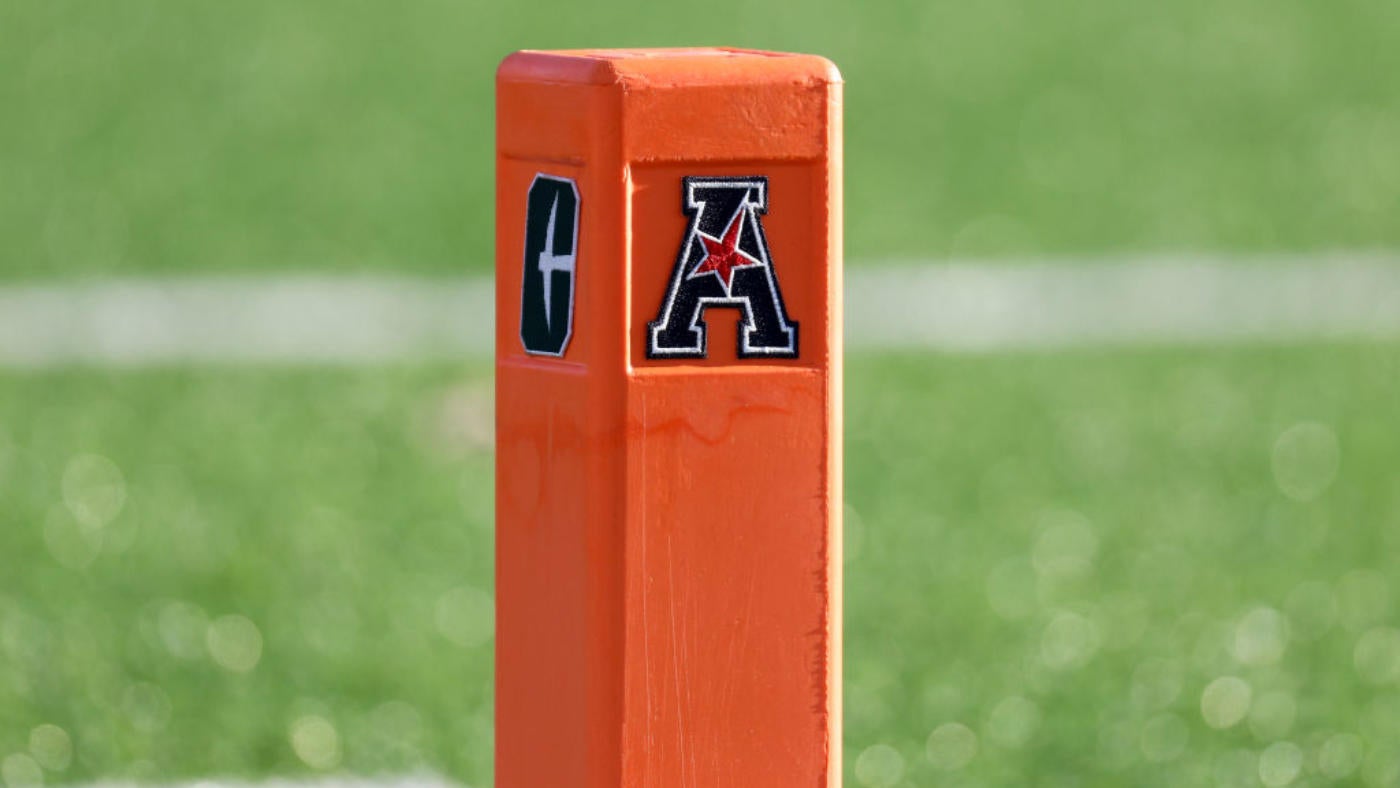
IRVING, Texas — Incoming American Athletic Conference commissioner Tim Pernetti spent time on both sides of college athletics learning the intricacies of the sport. From 2009-13, he served as athletic director at Rutgers and helped negotiate the Scarlet Knights’ entry to the Big Ten. He also worked on the television side of college sports at both ABC and CBS.
In June, he will take over full time as the second commissioner in AAC history, succeeding former television executive Mike Aresco. During this transitionary moment, stakeholders have one goal above all: Building a long-term, financially sustainable league that allows its members to compete at the highest level.
“I think it’s not an elephant in the room anymore,” Pernetti told CBS Sports. “Conference expansion has been the foundation of much of the disruption that’s gone on. It’s not a coincidence when TV deals are coming around and media rights are coming up, expansion starts to unfold.
“I think it’s important to listen, understand and then do some things differently because the bottom line is, these campuses are no different than campuses in the SEC, the Big Ten, the Big 12 or Conference USA. Everybody is out to do the same thing.”
The AAC was founded in 2011 as a spiritual successor to the old Big East. Outgoing commissioner Mike Aresco consistently rallied for the league, but the winds of realignment never fully died down. Since 2021, the AAC has been one of the most transient groups in the FBS. Three legacy schools left to join the Big 12 in 2023, while SMU departs for the ACC in 2024. Six former members of Conference USA joined in 2023, and Army enters as a football-only member in 2024.
Pernetti plans to come out swinging and launch a new business vision for the league, leaning on words like “innovation” and “disruption.” Among his ideas was private equity, which has recently become a controversial topic in college sports. Pernetti acknowledged that he does not believe a proper model for PE investment exists yet, but that it could come soon, bringing an infusion of money into the sport. He worked with investors at IMG College and IMG Academy, his most recent stops.
Additionally, Pernetti pointed to further corporate partnerships and naming rights and potentially expanding NIL funds to be distributed on a conference-wide basis. Ultimately, all the business investment is in pursuit of creating a lasting membership that is able to build a long-term identity in the sport.
“I’d like this league to be known as the most innovative league in collegiate athletics,” Pernetti said. “And to do that, we’ll do some different things, we’ll take some big swings at some stuff. If we take some big swings that result in creating new resources, what happens from there is that you’re creating an environment that people don’t want to leave, but want to stay in.”
Innovating the postseason
When Pernetti takes over as commissioner in June, he will also become one of 11 members of the CFP Management Committee, the group tasked with administering the College Football Playoff. The AAC commissioner serves next to the other nine FBS commissioners and Notre Dame athletic director Pete Bevacqua. With Pernetti joining the group, seven of the 11 members of the committee have rotated since 2021.
Pernetti admitted that he does not yet have strong views on the details of the playoff system, which expands to 12 teams in 2024 and guarantees a slot to a Group of Five champion. If this system had existed dating back to 2014, the AAC would have slotted seven teams into the field. The league remains the only Group of Five conference to send a team to the College Football Playoff when Cincinnati made the field in 2021.
“I think the evolution of the CFP is headed in the right direction: More slots, more games, more access (and) more college football in the postseason,” Pernetti said. “But 12 slots for 134 teams competing, I actually think there’s room for more. When I saw room for more, it may not necessarily be in the CFP. Who’s to say there’s not another postseason that is a complement to the existing postseason? There’s a lot out there. As you can tell, my wheels are turning on some stuff.”
The CFP approved an extension with ESPN in March that will pay $1.3 billion per season for television rights. However, the Group of Five schools will only receive a combined 9% of the contract yearly, which equivocates to slightly less than $2 million per school. By comparison, Big Ten and SEC schools will each receive $22 million from the CFP contract alone.
The contract guarantees that the new College Football Playoff will feature at least 12 teams, but does not make any promises of a format. Powerful stakeholders are pushing the CFP to expand, potentially up to 14 teams, or guarantee the Big Ten and SEC more guaranteed spots. The latter proposal has largely been tabled after backlash.
Pernetti will shadow the outgoing Aresco at the next meeting of the management committee, which takes place at the end of April.
Source link
#Incoming #AAC #commissioner #focused #innovating #league #postseason #evolving #college #athletics #landscape